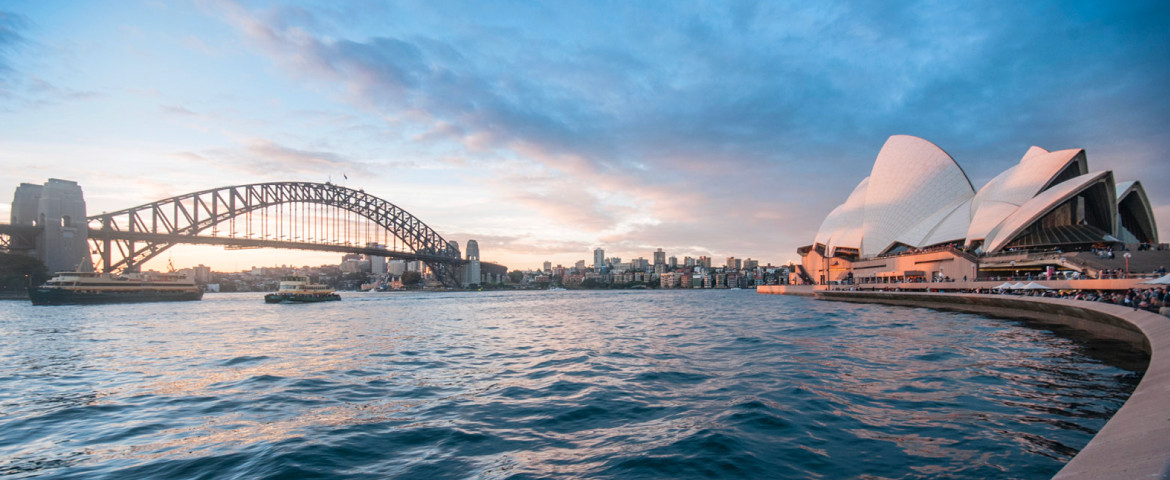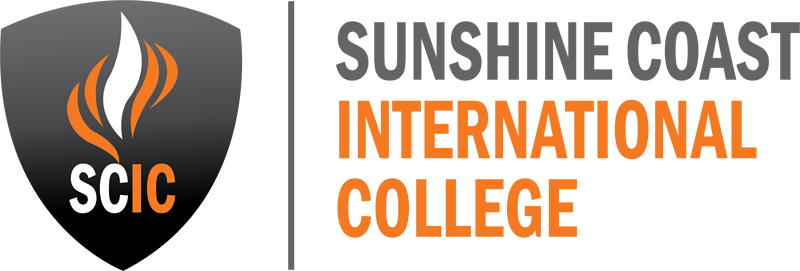
Living costs in Australia
How much will I need?
As a general rule, you will need approximately AU$30,000 to AU$36,000 per year to cover living expenses.
- Monthly: AU$2,500 to AU$3,000
- Weekly: AU$577 to AU$692
Note: These estimates include accommodation, food, transport, and other personal expenses. Costs can vary significantly based on lifestyle and location.
The Department of Home Affairs (DHA) might require you to show you have access to at least AUD 29,710 per year to cover living costs.
If you want to bring your partner or spouse, you may need to show additional income requirements:
- Partner: AUD 10,394.
- Child: AUD 4,449.
Accommodation Costs
• Hostels and Guesthouses – $90 to $150 per week
• Shared Rental – $85 to $215 per week
• Homestay – $420 (over 18) to $445 (under18) per week
• Rental – $165 to $440 per week
SCIC Accommodation Partner
Our accommodation partner, Study Vision, can help you find accommodation for when you arrive in Australia.
- If you are aged 18 years or older, Study Vision can help you find Homestay Accommodation or Shared Student Accommodation.
- If you are under 18 years old, Study Vision can arrange a homestay for you, as well as help you with Welfare/Guardianship, which is required for your visa application.
Please visit their website for more information
Other living expenses
- Groceries and eating out – $180 to $220 per week
- Gas, electricity – $70 to $90 per wee
- Phone and Internet – $20 to $80 per week
- Public transport – $30 to $55 per week
- Car (after purchase) – $150 to $260 per week
- Entertainment – $80 to $150 per week
Useful Links
- To convert to your own currency, visit http://www.xe.com/
- The Australian Government provides information and guidance on managing your finances. You can read more at: http://www.moneysmart.gov.au
- For a specific breakdown of accommodation and other living costs, please refer to: https://www.studyaustralia.gov.au/english/live/living-costs
- The ‘Insider Guides Cost of Living Calculator’ is also a useful tool to help estimate your cost of living in Australia: http://www.insiderguides.com.au/cost-of-living-calculator/
Essential Information
What you can bring into Australia
Students are often surprised by how strict Australian Customs Services and Quarantine can be. If you’re in doubt about whether your goods are prohibited or not, declare it anyway on the Incoming Passenger Card, which you will receive on the plane. Students have received on-the-spot fines for not declaring items.
Detector Dogs
You may see a Quarantine Detector Dog at the baggage carousel or while waiting in line to pass through immigration, screening luggage for food, plant material or animal products. If you see a detector dog working close to you, please place your bags on the floor for inspection. These dogs are not dangerous to humans and are trained to detect odours. Sometimes a dog will sit next to your bag if it sniffs a target odour. Sometimes dogs will detect odours left from food you have had in the bag previously. A quarantine officer may ask about the contents of your bag and check you are not carrying items that present a quarantine risk to Australia.
Australian Customs and Quarantine
Once you have your luggage you will go through Customs. Be careful about what you bring into Australia. Some items you might bring from overseas can carry pests and diseases that Australia doesn’t have. You must declare ALL food, meat, fruit, plants, seeds, wooden souvenirs, animal or plant materials or their derivatives. Australia has strict quarantine laws and tough on-the-spot fines. Every piece of luggage is now screened or x-rayed by quarantine officers, detector dog teams and x-ray machines. If you fail to declare or dispose of any quarantine items or make a false declaration, you will get caught. In addition to on-the-spot fines, you could be prosecuted and fined more than AU$60,000 and risk 10 years in prison. All international mail is also screened.
Some products may require treatment to make them safe. Items that are restricted because of the risk of pests and disease will be seized and destroyed by the Australian Quarantine and Inspection Service (AQIS).
For more information, see http://www.agriculture.gov.au/SiteCollectionDocuments/arriving-english-factsheet.pdf
Seasons
Summer in Australia is from December to February, autumn from March to May, winter from June to August, and spring from September to November. For most of the country the hottest months are January and February.
If you arrive in June or July, the coldest months of the year, you may need to bring or buy winter clothing and blankets. You may also need to buy a heater once you arrive.
Mobile Phones
Before bringing your mobile phone to Australia check with the Australian Communications and Media Authority www.acma.gov.au to make sure it can operate here. Some countries, such as Japan and the USA, use mobile phone networks that are not available in Australia. If not, you can buy your mobile phone in Australia.
Australian telecommunications providers offer a wide range of services which provide a mobile phone within the cost of using that service. There are many differences between the services provided. You should understand what deal you are accepting before signing a contract with a provider.
For a comparison of mobile phone plans in Australia see: http://www.mobiles.com.au/mobile-phone-plans/
Overseas Student Health Cover (OSHC)
Overseas student health cover (OSHC) is insurance that provides cover for the costs of medical and hospital
care which international students may need while in Australia and is mandatory for international student visa
holders. OSHC will also cover the cost of emergency ambulance transport and most prescription drugs.
How do I get OSHC?
Only Australian health funds that have signed an agreement with the Australian Government can provide
OSHC. You will be required to join one of these four registered health funds. You may choose to change your
health fund at any time, but will need to abide by the conditions of change of the health fund provider you are
leaving.
OSHC Providers
Medibank Private: www.medibank.com.au
Allianz Care Australia OSHC: www.oshcworldcare.com.au
BUPA OSHC: www.overseasstudenthealth.com
Australian Health Management: www.ahm.com.au
What am I covered for?
OSHC provides a safety net for medical expenses for international students, similar to that provided to Australians through Medicare. Additionally, OSHC includes access to some private hospitals and day surgeries, ambulance cover and benefits for pharmaceuticals
How do I use my OSHC card?
If you need to visit a doctor or medical centre, show your card at the end of the visit. You will be charged the doctor’s fee and the government fee component of that may be processed by the medical centre. If the medical centre is not able to process the government fee, pay the total amount, keep the receipt and you can claim the government fee back from your OSHC provider. See also: Public hospital waiting times. General Practitioners (GPs)
General Practitioners (GPs)
In Australia you do not have to go to a hospital to see a doctor. You can see a doctor (also known as a GP –General Practitioner) in their private practice or medical centre, with part or the entire doctor’s fee being covered by OSHC.
It is important to note that some GP surgeries will request full payment from you at the time of consultation and you will need to present the receipt to claim the rebate back from your health cover.
Pharmacies
GP surgeries do not have medications to dispense to you. You must take the prescription given to you by the doctor to a Pharmacy or Chemist to obtain the medication. You will need to provide the pharmacy with your OSHC card, your full name and address. You are able to walk in off the street to any pharmacy/chemist/drug store in Australia and will only have to wait a short while for your prescription medicine to be prepared.
Banking
Most bank branches are open from Monday to Friday, 9:00am to 4:00pm (except on public holidays). Some branches have extended trading hours during the week and may be open Saturdays (check with your individual bank).
ATMs remain open 24 hours a day. However, you should be aware of your personal safety if accessing cash from an ATM at night in quiet areas where there are not a lot of people around. These general rules should be followed for ATM safety, especially at night:
- Minimise your time at the ATM by having your card ready when you approach the machine;
- Take a look around as you approach the ATM and if there’s anything suspicious, don’t use the machine at that time;
- If you don’t feel comfortable using a particular ATM, think about going to another branch or using off-street ATMs;
- Remember that EFTPOS can be used to withdraw cash at many other places, like supermarkets and service stations;
- If you simply want to check your account balance or transfer funds between accounts, telephone or Internet banking can be used instead of an ATM.
Working While Studying
1. You are not permitted to start work until you have commenced your course of study
2. You can work a maximum of 48 hours per fortnight during your course.
Getting a Tax File Number
You must obtain a Tax File Number to be able to work in Australia. A tax file number (TFN) is your unique reference number to our tax system. When you start work, your employer will ask you to complete a tax file number declaration form. If you do not provide a TFN your employment will be taxed at the highest personal income tax rate, which will mean less money in your wages each week. You can apply for your TFN online at https://www.ato.gov.au/individuals/tax-file-number/apply-for-a-tfn/foreign-passport-holders,-permanent-migrants-and-temporary-visitors—tfn-application



